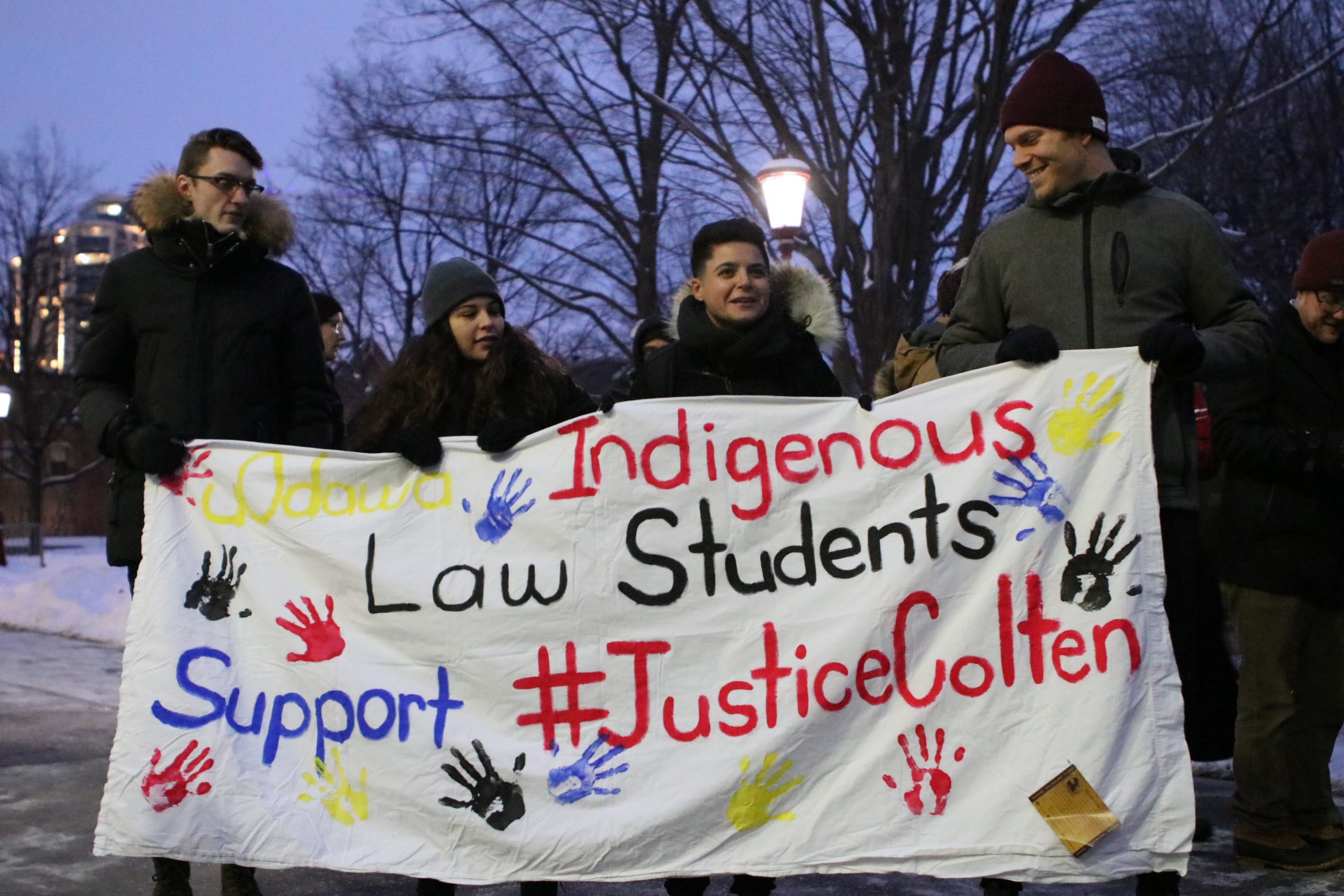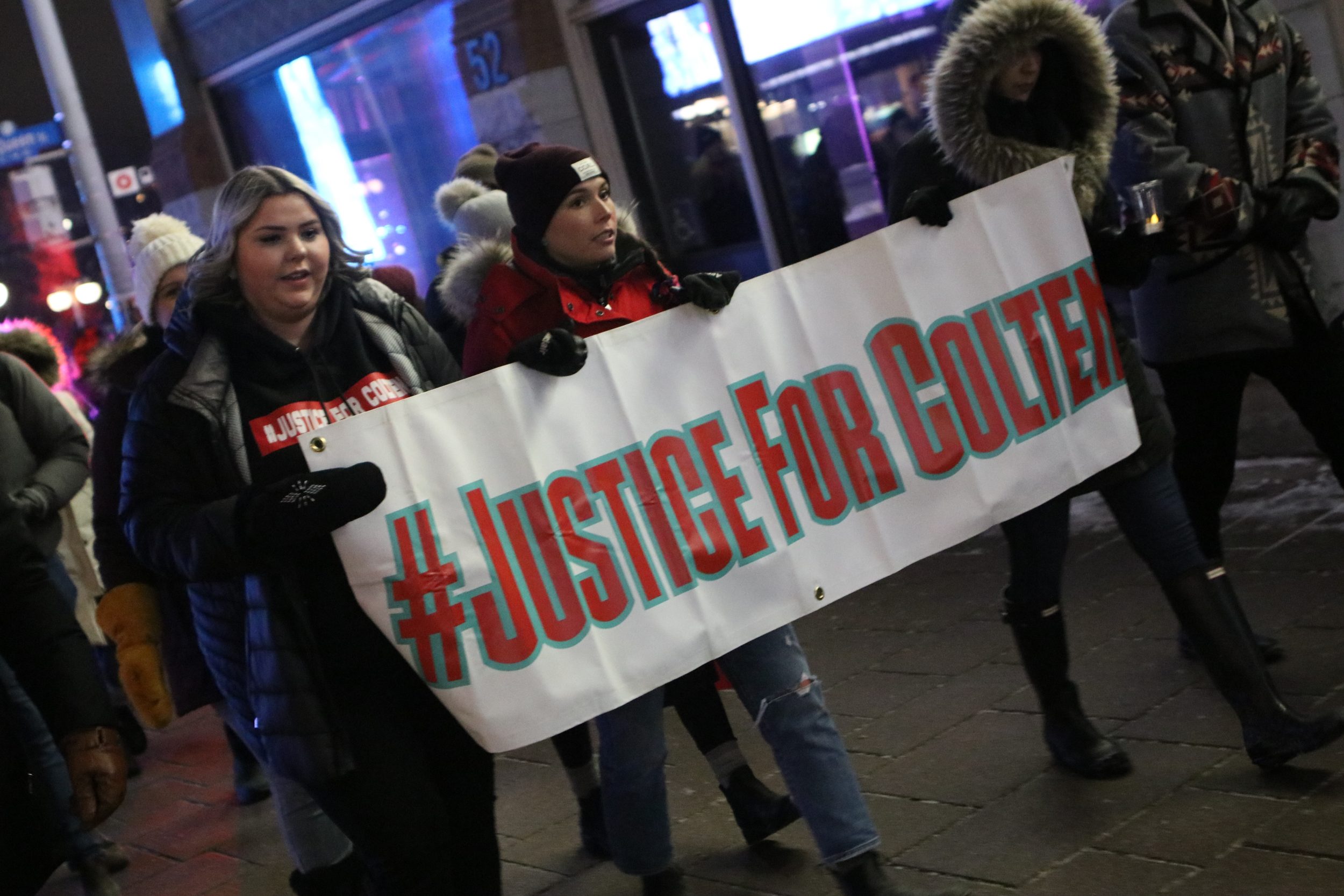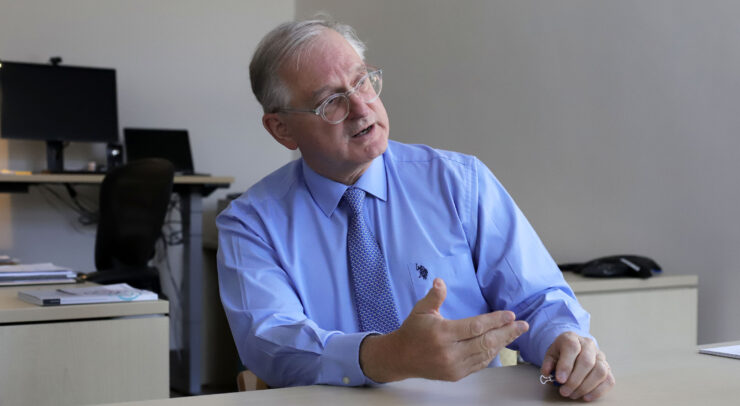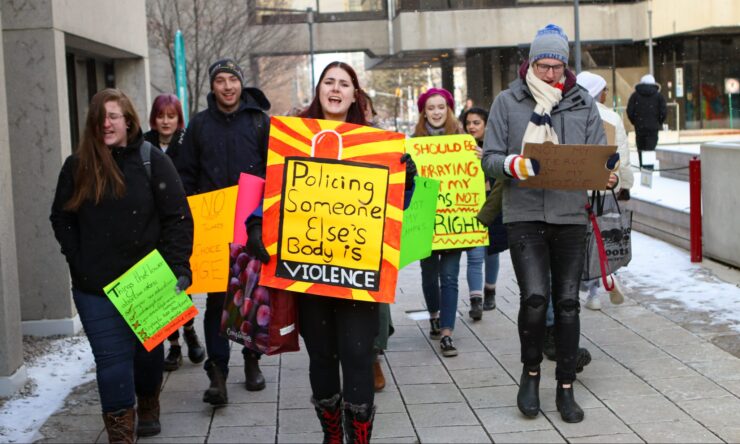Nearly 100 people gathered for a vigil at Tabaret Hall before marching to Parliament Hill, Supreme Court of Canada
This past Sunday marked two years since Gerald Stanley was acquitted of the murder of Colten Boushie, and nearly 100 people in Ottawa braved freezing temperatures that night for a vigil ceremony and demonstration that both honoured Boushie’s life and called for his justice.
On Aug. 9, 2016, the 22-year-old Cree man was shot and killed on Stanley’s farm in Saskatchewan, after Stanley thought that Boushie and his friends were stealing an all-terrain vehicle. Stanley was charged with second-degree murder but was later acquitted when his two-week jury trial concluded on Feb. 9, 2018.
“Colten didn’t die in vain, and we want to remember his name and his story,” said Andre Bear, a Cree law student at the University of Saskatchewan and a friend of the Boushie family.
Bear, who is a member of the Canoe Lake First Nation and serves as the student representative on the Indigenous Bar Association in Canada’s board of directors, was invited to speak at the vigil and the demonstration that followed by the University of Ottawa’s Indigenous Law Students Association (ILSA), the group that organized the event.
“We want to remember every single other person who has never found justice in this country, and stand in solidarity with the family of Colten Boushie and call for justice in the legal system,” said Bear.
It was Stanley’s acquittal, Bear said, that drove him to enroll in law school and pursue a career as a lawyer.
“I grew up with the family of Colten Boushie and it really hit close to home, and actually tore my world apart,” he said. “I found it in myself to have the passion and advocacy for justice for not only Indigenous peoples, but for all people in Canada.”
While the night was dedicated to honouring Boushie’s life, it also saw Bear and members from ILSA launch a petition for a public inquiry into the death and trial of Boushie.
“We’re hoping possibly for a response from the Minister of Justice — in both Saskatchewan and the Minister of Justice Canada — on the call for a public inquiry, and hopefully see one confirmed someday,” said Bear.
Before marching to Parliament Hill and ending the evening outside of the Supreme Court of Canada where the inquiry was called, the night began with a vigil ceremony outside of Tabaret Hall, where drum songs were performed and speeches were made.
Tawny Allison, the president of the U of O’s ILSA chapter, told the crowd that the evening will serve as a reminder to Canada of the injustices that they have committed against Indigenous peoples.
“Tonight we are calling out the systemic failures of the Canadian justice system and how it failed Colten,” said Allison. “Canada continues to fail Indigenous people and communities from before we’re born until after we enter the spirit world.”
Claudette Commanda, the law school’s Elder in Residence and member of the university’s Board of Governors, called for an end to the injustices that Indigenous peoples in Canada face on a daily basis.
“Is it justice? Or is it just us? Because I can tell you as a First Nation person, throughout my 64 years on this earth, I have seen just us,” said Commanda.
In her parting message before the group marched to Parliament Hill and to the Supreme Court of Canada, Commanda reminded the demonstrators to “walk for justice, raise voices and say no more.”
“We’re going to demand this public inquiry, we’re going to demand that the lawmakers are going to hear all your voices,” said Commanda. “You’re going to raise your voices, you’re going to not be silent any longer and keep demanding — demanding because eventually, somebody is going to hear you.”









